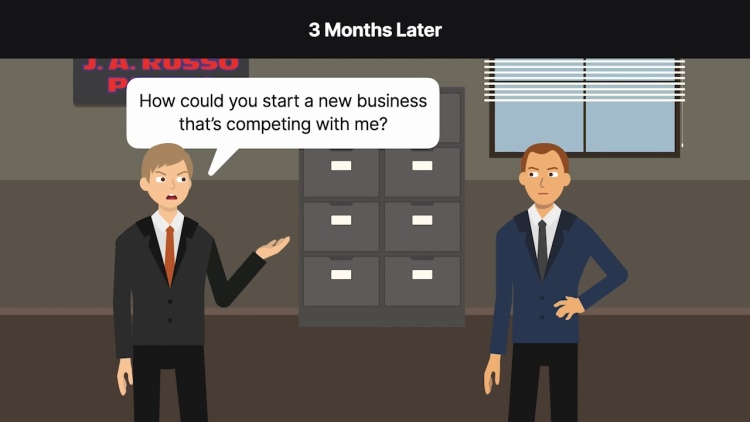Russo v. Griffin
Vermont Supreme Court
510 A.2d 436 (1986)
- Written by Craig Conway, LLM
Facts
Joseph Russo turned over his long-established paving business, J.A. Russo Paving, Inc. (Russo Paving) (plaintiff), two his two sons, Anthony (plaintiff) and Frank. The two brothers hired attorney H. Vaughn Griffin, Jr. (Griffin) (defendant), and his firm Griffin & Griffin, Ltd. (defendant), to assist with the process of incorporating the business. Griffin drew up the necessary paperwork, filed the documents with the Secretary of State’s office, and arranged for the transfer of assets. Several years later, Frank considered leaving the paving business to purchase a laundromat. The two brothers met with Griffin to discuss Anthony’s buy-out of Frank’s share of the business. At no time during the meeting did Griffin inform Anthony of including a covenant not to compete in the documents for Frank to sign. Three months after the buy-out, Frank went back into the paving business in direct competition with Russo Paving. Anthony and Russo Paving filed suit against defendants for legal malpractice, asserting that inclusion of a non-compete in the transfer documents would have prevented Frank from establishing a business in direct competition with Russo Paving. At trial, plaintiffs provided two attorneys who had practices in the state’s largest city who testified that Griffin’s failure to advise the plaintiffs to include a covenant not to compete deviated from the standard of care required of practicing attorneys in the state. Griffin introduced two similar attorneys who practiced in the community who testified that Griffin’s conduct was consistent with the applicable standard of care. The trial court sided with defendants and applied the locality rule in holding that the relevant standard of care was what a careful and prudent practitioner in the town or community in which the lawyer practices would do under the same or similar circumstances. Plaintiffs appealed.
Rule of Law
Issue
Holding and Reasoning (Hill, J.)
What to do next…
Here's why 907,000 law students have relied on our case briefs:
- Written by law professors and practitioners, not other law students. 47,100 briefs, keyed to 996 casebooks. Top-notch customer support.
- The right amount of information, includes the facts, issues, rule of law, holding and reasoning, and any concurrences and dissents.
- Access in your classes, works on your mobile and tablet. Massive library of related video lessons and high quality multiple-choice questions.
- Easy to use, uniform format for every case brief. Written in plain English, not in legalese. Our briefs summarize and simplify; they don’t just repeat the court’s language.





